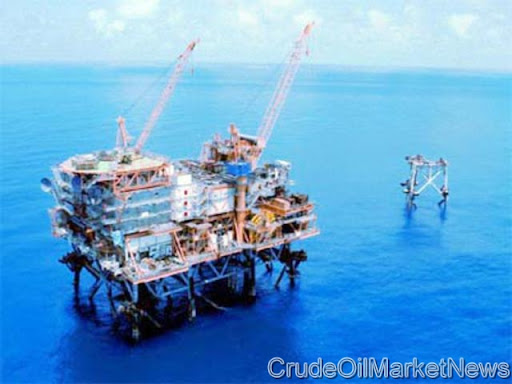Tuesday, 22 February 2011
Crude oil climbs as unrest in Libya widens
 Two months ago, the chairman of Libya's national oil company said that he expected the price of crude oil to surpass $100 a barrel. Thanks to a wave of unrest in his own country, he has turned out to be right.
Two months ago, the chairman of Libya's national oil company said that he expected the price of crude oil to surpass $100 a barrel. Thanks to a wave of unrest in his own country, he has turned out to be right.
With signs of disarray in Libya's military and protesters thronging the streets of its biggest cities, anxiety about the security of Libya's approximately 1.2 million barrels a day of oil exports drove up crude oil prices on world markets.
Oil analysts said Monday that as much as half of those exports could be blocked if coastal ports were closed. A significant portion of the country's exports come from the eastern side of the Gulf of Sidra, near the most severe of the protests against longtime Libyan leader Moammar Gaddafi. The satellite television channel al-Jazeera had reported that Libya's Nafoora oil field had stopped producing because of an employee strike.
In a speech on state television Sunday night, Gaddafi's son Saif al-Islam Gaddafi warned protesters that they risked igniting a civil war in which Libya's oil wealth "will be burned."
Brent crude - one of the world's benchmarks for petroleum prices - rose 3.1 percent to $105.70 a barrel in London on Monday, the highest level in more than two years. The price of West Texas Intermediate, another benchmark, jumped 6.2 percent to $95.30 a barrel on New York exchanges.
Although the United States imports little oil directly from Libya, the prolonged loss of nearly 2 percent of the world's output would drive up global prices and add to the already steep prices motorists are paying here. AAA said Sunday that the nationwide price of regular gasoline hit a 28-month high of $3.16 a gallon Friday, up 55 cents from a year ago.
Companies operating in Libya said they were evacuating employees' families and monitoring the situation, though they said production had not been curtailed. Shell said its Tripoli office was closed. "The safety and security of our staff remain our priority," said a Shell spokeswoman.
Italian oil giant ENI, the largest oil producer in Libya, said that its operations had not been affected but that it had removed 100 people from the country, including nonessential employees and expatriates' families. ENI's share price dropped 5 percent Monday.
ENI, which has operated in Libya since the 1950s, produces 550,000 barrels a day in the country, of which ENI owns 270,000 barrels a day; its partners own the rest. It owns half of a pipeline that takes natural gas to Italy.
Libya has been a steady oil exporter for years. (It also consumes 280,000 barrels a day.) Its primary export markets are Italy, Germany, China, France and Spain.
Its high-quality crude oil, known as light, sweet oil, is the type most easily converted into gasoline and diesel fuel, and therefore the type most highly valued on world markets, said Edward Morse, chief energy economist at Credit Suisse. Morse said the approach of spring, traditionally a time of low oil demand, "should ease market fundamentals but doesn't mean it will."
Officials from more than 90 nations, including Saudi Arabia's oil minister, Ali al-Naimi, and U.S. Deputy Secretary of Energy Daniel B. Poneman, were to meet in Riyadh, Saudi Arabia, on Tuesday to discuss curbing oil-price fluctuations.
Morse said there are about 4.5 million barrels a day in spare oil-production capacity worldwide, including 3.5 million barrels a day in Saudi Arabia. Traders will look to Naimi for indications of whether his country stands ready to boost output to calm markets.
Libya has 47 billion barrels of proven petroleum reserves, the ninth-largest in the world and the largest in Africa, according to the Organization of the Petroleum Exporting Countries, to which Libya belongs. It also has 54 trillion cubic feet of natural gas reserves, according to the U.S. Energy Information Administration.
Despite its large reserves and reliance on oil for 95 percent of its export earnings, Libya has watched its production decline to about half of the 3 million barrels a day it produced in the 1960s.
Oil companies say they have excellent prospects for finding much more oil, but their access to the country is limited.
Signing exploration and production deals became easier after the United Nations and United States lifted sanctions in 2003 and 2004. In 2006, the United States rescinded Libya's designation as a state terrorism sponsor. In 2005, after 19-year absences, Occidental Petroleum, Marathon Oil and Amerada Hess signed agreements to return to their former production areas and explore.
After years of cool relations with many other foreign firms, Gaddafi also has reopened the door to companies such as BP, which had been forced out three decades earlier when oil-exporting countries flexed their muscles.
In May 2007, BP and the Libyan national oil company signed an exploration deal, which at the time BP said could lead to 20 appraisal wells. The onshore portion of the acreage near Algeria was the size of Kuwait, and the portion in the Mediterranean was the size of Belgium, BP said.
On Monday, BP said it was "preparing to evacuate families and non-essential staff." It has 140 people, including 40 expatriates, working in Libya, mostly in Tripoli. Preparations for onshore drilling in the country's western desert were suspended because of the evacuations, said Robert Wine, a BP spokesman. Offshore drilling is not scheduled to begin until later in the first half of this year.

This post was written by: HaMienHoang (admin)
Click on PayPal buttons below to donate money to HaMienHoang:
Follow HaMienHoang on Twitter




0 Responses to “Crude oil climbs as unrest in Libya widens”
Post a Comment